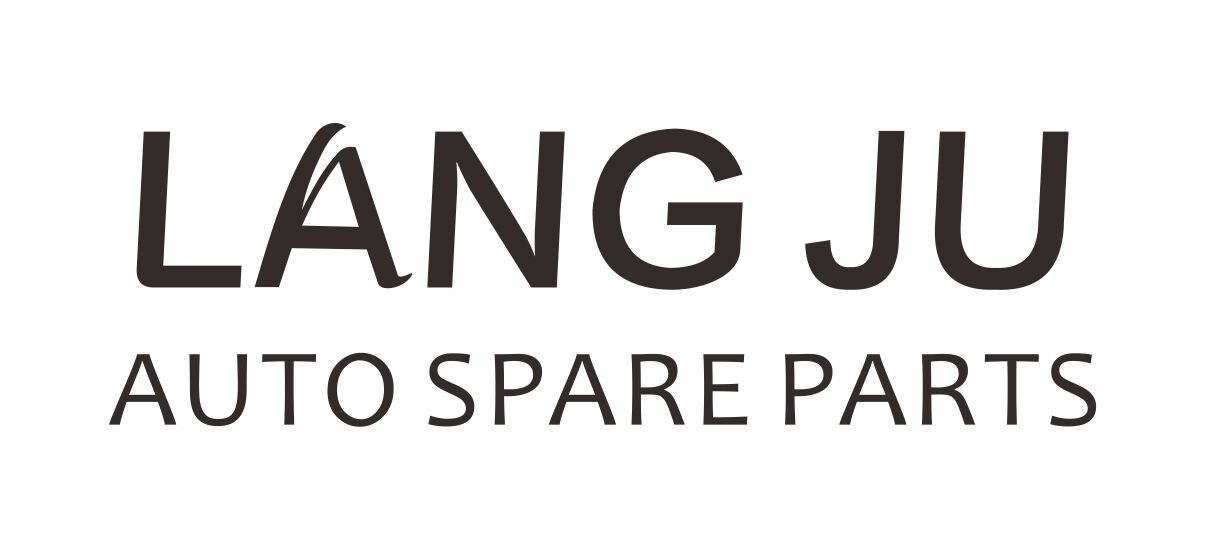การเข้าใจมาตรฐานคุณภาพสำหรับ ตัวถังรถยนต์ ชิ้นส่วน
ข้อมูลจำเพาะของวัสดุสำหรับฝากระโปรงและประตู
เมื่อผลิตชิ้นส่วนตัวถังรถยนต์ เช่น ฝากระโปรงและประตู การเลือกวัสดุที่เหมาะสมมีความสำคัญมาก แนวทางอุตสาหกรรมส่วนใหญ่แนะนำให้ใช้เหล็กและอลูมิเนียมที่มีคุณภาพ เพราะวัสดุเหล่านี้มีบทบาทสำคัญต่อความปลอดภัยและความน่าเชื่อถือของรถยนต์โดยตรง วัสดุเหล่านี้จำเป็นต้องมีความทนทานตามระยะเวลาที่ใช้งาน เนื่องจากจุดอ่อนของวัสดุสามารถส่งผลกระทบต่อโครงสร้างโดยรวมของรถยนต์ในกรณีเกิดอุบัติเหตุ เราได้เห็นหลายกรณีที่วัสดุคุณภาพต่ำทำให้ค่าใช้จ่ายในการซ่อมแซมสูงขึ้น และก่อให้เกิดอันตรายอย่างแท้จริงบนท้องถนน ตัวอย่างเช่น มาตรฐาน ISO 9001 มาตรฐานนี้ช่วยให้ผู้ผลิตปฏิบัติตามกฎเกณฑ์ที่เข้มงวดเกี่ยวกับคุณภาพของวัสดุ ดังนั้นทุกสิ่งตั้งแต่กันชนไปจนถึงแผงประตูจึงสามารถตอบสนองข้อกำหนดด้านความปลอดภัยพื้นฐานที่ผู้บริโภคคาดหวังจากยานยนต์ในปัจจุบัน
ความเข้ากันได้ในรถรุ่นต่างๆ
สำหรับผู้จัดจำหน่ายชิ้นส่วนรถยนต์ที่ต้องการเข้าถึงลูกค้าให้ได้มากที่สุด การทำให้มั่นใจว่าฝากระโปรงและประตูสามารถใช้งานได้กับรถยนต์หลายรุ่นไม่ใช่แค่เรื่องสำคัญ แต่เป็นสิ่งจำเป็น เมื่อชิ้นส่วนสามารถติดตั้งและใช้งานได้กับรถยนต์หลายรุ่นโดยไม่มีปัญหา มันก็ยิ่งเพิ่มความน่าสนใจให้กับผู้ซื้อที่กำลังมองหาชิ้นส่วนสำหรับเปลี่ยนทดแทน ประสบการณ์ในอุตสาหกรรมแสดงให้เห็นว่าการออกแบบฝากระโปรงและประตูบางแบบสามารถใช้งานได้กับรถยนต์หลายสิบรุ่นพร้อมกัน ซึ่งช่วยเปิดตลาดใหม่ๆ ให้กับผู้ผลิต แต่การรักษามาตรฐานความเข้ากันได้ของชิ้นส่วนหลากหลายรุ่นนี้ไม่ใช่เรื่องง่าย ปัญหาการติดตั้งมักเกิดขึ้นอย่างต่อเนื่อง การแก้ไขปัญหาเหล่านี้ก่อนที่จะกลายเป็นข้อร้องเรียนจึงมีความสำคัญอย่างมากในการรักษาการขายให้คงที่และลูกค้าให้พึงพอใจ ชิ้นส่วนที่ไม่พอดีจะส่งผลเสียทั้งตัวเลขการขายและชื่อเสียงของแบรนด์ ดังนั้นธุรกิจที่มีวิสัยทัศน์จึงมักลงทุนอย่างหนักในการพัฒนาชุดผลิตภัณฑ์ที่ครอบคลุมแพลตฟอร์มหลายประเภท
ใบรับรองที่ควรพิจารณา
คุณกำลังมองหาอะไหล่สำหรับตัวถังรถยนต์อยู่หรือเปล่า? มาตรฐานรับรองเช่น CE, DOT และ IATF 16949 มีความสำคัญอย่างมากในการแยกแยะอะไหล่ที่มีคุณภาพดีออกจากส่วนที่เหลือ สัญลักษณ์เหล่านี้แสดงให้เห็นว่าผลิตภัณฑ์ดังกล่าวเป็นไปตามกฎเกณฑ์และมาตรฐานที่ทุกคนในอุตสาหกรรมยึดถือ ซึ่งส่งผลต่อการตัดสินใจซื้อของผู้บริโภคอย่างชัดเจน จากการวิจัยตลาดล่าสุด พบว่าประมาณ 78% ของเจ้าของรถยนต์ให้ความชอบอะไหล่ที่มีการรับรองที่เหมาะสมมากกว่าแบบที่ไม่มีรับรอง การได้รับการรับรองเหล่านี้ไม่ใช่เพียงแค่ขั้นตอนทางเอกสารสำหรับผู้จัดจำหน่ายเท่านั้น แต่ยังช่วยสร้างความไว้วางใจจากลูกค้าที่อาจเข้ามา และช่วยให้โดดเด่นในตลาดที่มีตัวเลือกมากมาย ที่สำคัญที่สุด อะไหล่ที่ผ่านการรับรองช่วยให้มั่นใจได้ถึงความปลอดภัยและการทำงานที่มีประสิทธิภาพ พร้อมทั้งช่วยให้ผู้ผลิตสร้างความสัมพันธ์ที่ดีขึ้นกับตัวแทนจำหน่ายที่ต้องการสินค้าคงคลังที่เชื่อถือได้และขายได้อย่างมั่นใจ
ศักยภาพในการผลิตและการผลิตในระดับใหญ่
เมื่อพูดถึงการดำเนินการสั่งซื้อจำนวนมากโดยไม่ลดทอนคุณภาพ กำลังการผลิตของผู้จัดจำหน่ายมีบทบาทสำคัญมาก ประสิทธิภาพของเครื่องจักรและประสบการณ์ของพนักงานมีผลอย่างมากต่อทั้งคุณภาพของสินค้าที่ผลิตออกมาและอัตราการผลิตที่รวดเร็ว ผู้จัดจำหน่ายที่ลงทุนในอุปกรณ์ที่ดีกว่าและฝึกอบรมพนักงานมักจะผลิตสินค้าได้มากขึ้นโดยไม่ลดมาตรฐานด้านคุณภาพ หากเปรียบเทียบผู้จัดจำหน่ายต่างๆ แบบตัวต่อตัว มักจะเห็นความแตกต่างของปริมาณการผลิตที่ชัดเจน บางโรงงานสามารถผลิตสินค้าได้มากกว่าหลายหมื่นชิ้นต่อปีเพียงเพราะมีระบบอัตโนมัติในการดำเนินงานเกือบทั้งหมด และกระบวนการทำงานในแต่ละขั้นตอนของสายการผลิตดำเนินไปอย่างราบรื่น
ช่วงของ สินค้า : แฟนเดอร์, ฝากระโปรงท้าย & อื่นๆ
การมีอะไหล่หลากหลายชิ้นนอกเหนือจากฝากระโปรงหน้าและประตูรถยนต์ไว้ในสต็อก มีความสำคัญอย่างมากเมื่อต้องตอบสนองความต้องการของลูกค้าที่หลากหลายในแต่ละตลาด ปกติแล้วแคตตาล็อกจะเติบโตและเพิ่มรายการสินค้าเข้ามา เช่น ซุ้มล้อหน้า ฝาครอบประตูท้าย และแม้กระทั่งกระจังหน้าที่ดูหรูหรา หรือกันชนที่แข็งแรงทนทาน ซึ่งปัจจุบันผู้บริโภคมักให้ความสนใจ เมื่อผู้จัดจำหน่ายมีสินค้าที่ครอบคลุมหลากหลายชิ้นส่วน ก็จะมีโอกาสเพิ่มมากขึ้นในการขายชิ้นส่วนหลายชิ้นร่วมกันเป็นแพ็กเกจ ซึ่งจะช่วยผลักดันรายได้รวมให้เพิ่มสูงขึ้น นอกจากนี้ การกระจายสินค้าไปยังชิ้นส่วนต่างๆ ยังช่วยลดความเสี่ยงที่อาจเกิดจากการพึ่งพาชิ้นส่วนใดชิ้นส่วนหนึ่งมากเกินไป หากความต้องการประตูรถยนต์ลดลงอย่างกะทันหัน ก็ยังมีสินค้าอื่นๆ ที่สามารถพึ่งพาได้ ทำให้ธุรกิจสามารถรับมือกับการเปลี่ยนแปลงต่างๆ ในตลาดได้อย่างมีประสิทธิภาพมากยิ่งขึ้น
ตัวเลือกการปรับแต่งสำหรับคำสั่งซื้อจำนวนมาก
บริษัทต่างๆ จำนวนมากขึ้นเรื่อยๆ ตระหนักถึงความสำคัญของความสามารถในการปรับแต่งสินค้า เนื่องจากพวกเขาต้องการดีไซน์เฉพาะตัวหรือฟีเจอร์พิเศษที่สอดคล้องกับอัตลักษณ์ของแบรนด์ เมื่อธุรกิจเสนอสินค้าที่ผลิตตามสั่ง ลูกค้ามักจะอยู่กับแบรนด์นานขึ้น และสั่งซื้อในปริมาณที่มากขึ้นด้วย ผู้คนชื่นชอบการได้รับสิ่งของที่ถูกออกแบบมาตรงตามที่ต้องการ ซึ่งเป็นเหตุผลว่าทำไมผู้บริโภคจำนวนมากจึงหันมาสนใจทางเลือกที่สามารถปรับให้เป็นส่วนตัวในปัจจุบัน ไม่ว่าจะมองไปที่อุตสาหกรรมใด ตั้งแต่แฟชั่นไปจนถึงอุปกรณ์เทคโนโลยี ทุกคนต่างต้องการสิ่งที่มีความโดดเด่นและไม่เหมือนใครในตอนนี้ บริษัทที่เข้าใจและตอบสนองต่อแนวโน้มนี้ มักพบว่ากำไรของพวกเขามีแนวโน้มเพิ่มขึ้น เพราะเมื่อลูกค้ารู้สึกเชื่อมโยงกับสิ่งที่ตนซื้อ พวกเขาก็จะกลับมาซื้อซ้ำอีกและอีกครั้ง ผลประกอบการโดยรวมจะดีขึ้นเมื่อผลิตภัณฑ์สามารถสะท้อนสิ่งที่ลูกค้าใส่ใจในระดับส่วนตัวได้จริง
กระบวนการตรวจสอบผู้จัดจำหน่าย
การประเมินใบอนุญาตทางธุรกิจและการปฏิบัติตามกฎระเบียบ
การตรวจสอบว่าผู้ขายมีความน่าเชื่อถือหรือไม่ โดยดูจากเอกสารสำคัญ เช่น ใบอนุญาตประกอบธุรกิจ และใบรับรองความสอดคล้อง เป็นสิ่งที่มีความสำคัญมากสำหรับบริษัท เอกสารเหล่านี้โดยพื้นฐานจะแสดงให้เห็นว่าผู้ขายมีการปฏิบัติตามกฎเกณฑ์ของอุตสาหกรรมและมาตรฐานทางกฎหมายหรือไม่ หากบริษัทละเลยขั้นตอนนี้ อาจส่งผลให้ต้องทำงานร่วมกับผู้ขายที่ไม่ปฏิบัติตามข้อกำหนด ซึ่งอาจนำไปสู่ปัญหาทางกฎหมายหรือความเสียหายทางการเงินในอนาคต สิ่งที่ควรตรวจสอบอย่างรวดมีดังนี้: ขั้นแรก ตรวจสอบว่าผู้ขายยังมีใบอนุญาตประกอบธุรกิจที่ยังมีผลบังคับใช้อยู่หรือไม่ ขั้นต่อไป ให้ตรวจสอบใบรับรองต่าง ๆ ที่ตรงกับประเภทงานที่ผู้ขายดำเนินการในธุรกิจของคุณ และสุดท้าย ให้ตรวจสอบประวัติที่ผ่านมาของผู้ขายเพื่อดูว่ามีปัญหาเกี่ยวกับความสอดคล้องในอดีตหรือไม่ การดำเนินขั้นตอนเหล่านี้ล่วงหน้าจะช่วยปกป้องบริษัทจากปัญหาที่อาจเกิดขึ้นในภายหลัง และทำให้การดำเนินงานเป็นไปอย่างราบรื่นเมื่อเลือกคู่ค้า เมื่อผู้ขายผ่านกระบวนการตรวจสอบอย่างละเอียดเช่นนี้ จะช่วยสร้างความไว้วางใจระหว่างองค์กรได้ดียิ่งขึ้นในระยะยาว
การวิเคราะห์ประสบการณ์การส่งออกทั่วโลก
การพิจารณาว่าผู้จัดจำหน่ายหนึ่งรายนั้นดำเนินงานในแต่ละภูมิภาคของโลกมานานเพียงใด นับเป็นสิ่งสำคัญที่ส่งผลจริงๆ ต่อการส่งมอบสินค้าตรงเวลาและปราศจากปัญหา บริษัทที่มีการสร้างเครือข่ายการส่งออกที่ดีทั่วโลก มักสามารถจัดการให้สินค้าเคลื่อนย้ายผ่านพรมแดนได้อย่างราบรื่น เช่น กรณีของบริษัทหลิวโจว หลางจู้ เทรดดิ้ง (Liuzhou Langju Trading) ที่จัดส่งสินค้าไปยังหลายพื้นที่ทั่วทั้งตะวันออกกลาง เอเชียกลาง รวมไปจนถึงยุโรป ความครอบคลุมเช่นนี้แสดงให้เห็นว่าพวกเขารู้ดีว่าแนวทางใดเหมาะสมที่สุดสำหรับการขนส่งระหว่างประเทศ ผู้ประกอบการที่มีประสบการณ์ยาวนานรายอื่นๆ มักจะมีวิธีแก้ไขปัญหาเฉพาะหน้าที่เกิดขึ้นบ่อยครั้ง เช่น การล่าช้าจากกระบวนการศุลกากร หรือการตีความระเบียบข้อกำหนดท้องถิ่น ความเชี่ยวชาญที่ผ่านมาทำให้สินค้าถูกจัดส่งตรงตามกำหนด ซึ่งช่วยลดความกังวลใจให้แก่บริษัทคู่ค้า เนื่องจากพวกเขาทราบดีว่ามีผู้เชี่ยวชาญที่เข้าใจปัญหาที่อาจเกิดขึ้นระหว่างการขนส่งระหว่างประเทศ และสามารถแก้ไขก่อนที่ปัญหาจะบานปลาย
การตรวจสอบข้อมูลอ้างอิงและการให้คำแนะนำจากลูกค้า
การตรวจสอบข้อมูลอ้างอิงของลูกค้าและอ่านคำรับรองมีความสำคัญมากเมื่อพยายามสร้างความไว้วางใจและตัดสินว่าผู้ขายสามารถเชื่อถือได้หรือไม่ เมื่อบริษัทได้รับคำแนะนำที่ดีจากผู้อื่น โดยทั่วไปมักหมายความว่าพวกเขาสามารถปฏิบัติตามความคาดหวังได้ในส่วนมาก ซึ่งสะท้อนให้เห็นถึงสถานะของพวกเขาในการทำธุรกิจแบบ B2B มีหลายวิธีในการตรวจสอบข้อเรียกร้องเหล่านี้ บางธุรกิจจะติดต่อลูกค้ารายเก่าโดยตรง ในขณะที่บางรายดูรีวิวและระบบคะแนนบนอินเทอร์เน็ต เช่น บริษัทหลิวโจว แลงจู้ เทรดดิ้ง (Liuzhou Langju Trading) ที่เว็บไซต์ของพวกเขามีเรื่องราวจากลูกค้ามากมายที่พูดถึงการตอบสนองรวดเร็วและผลิตภัณฑ์ที่มีคุณภาพสูง ซึ่งเป็นสิ่งที่ส่งผลอย่างมากต่อการตัดสินใจซื้อของลูกค้า ตามตัวเลขที่เผยแพร่ล่าสุด ประมาณ 72 เปอร์เซ็นต์ของผู้ซื้อธุรกิจต่ำธุรกิจ ให้ความสำคัญกับความคิดเห็นของผู้อื่นมาก่อนที่จะตัดสินใจทำธุรกรรม ประสบการณ์จริงเหล่านี้ให้ข้อมูลที่มีค่าเกี่ยวกับประสิทธิภาพในการทำงานของผู้ขายในชีวิตประจำวัน ด้วยเหตุนี้ การใช้เวลาตรวจสอบความคิดเห็นจากลูกค้ารายอื่นจึงควรถูกบรรจุเป็นส่วนหนึ่งของกระบวนการประเมินผู้ขายที่มีความจริงจัง
ปัจจัยการโลจิสติกส์และการจัดการห่วงโซ่อุปทาน
มาตรฐานการบรรจุภัณฑ์สำหรับการขนส่งระหว่างประเทศ
การปฏิบัติตามมาตรฐานการบรรจุภัณฑ์ที่เหมาะสมมีความสำคัญอย่างมากในการรักษาความปลอดภัยของสินค้าขณะเคลื่อนย้ายข้ามพรมแดน องค์กรต่างๆ เช่น ISTA กำหนดเกณฑ์มาตรฐานที่ผู้ผลิตจำเป็นต้องปฏิบัติตาม เพื่อให้สินค้ามาถึงปลายทางในสภาพดี เช่นเดียวกับตอนที่ออกจากคลังสินค้า กฎระเบียบในแต่ละภูมิภาคนั้นอาจแตกต่างกันไป แต่โดยทั่วไปมีจุดมุ่งหมายเดียวกัน คือ การส่งของไปถึงโดยไม่มีความเสียหาย สำหรับการป้องกันที่แท้จริง บริษัทต่างๆ ใช้วัสดุเช่น กล่องลูกฟูก แผ่นกันกระแทกแบบฟองอากาศ และแผ่นโฟมสำหรับปรับแต่งเป็นพิเศษ ซึ่งไม่ได้ถูกเลือกโดยพลการ แต่ช่วยดูดซับแรงกระแทกและลดการสั่นสะเทือนที่เกิดขึ้นระหว่างการขนส่ง เมื่อต้องจัดการกับสินค้าอันตราย ความสอดคล้องตามข้อกำหนดยิ่งมีความสำคัญมากขึ้น IMDG Code มีข้อกำหนดที่เข้มงวดสำหรับการจัดการวัสดุอันตรายในการขนส่งทางทะเล การไม่ปฏิบัติตามอาจนำไปสู่ปัญหาใหญ่ เช่น การกักสินค้าหรือถูกปรับสูงลิ่ว องค์กรที่มีวิสัยทัศน์รู้ดีว่าเรื่องนี้สำคัญเพียงใด เพราะสินค้าเสียหายหมายถึงรายได้หายวับ และลูกค้าไม่พอใจ โดยเฉพาะในตลาดโลกที่แข่งขันกันอย่างดุเดือดในปัจจุบัน ซึ่งชื่อเสียงถือเป็นสิ่งสำคัญที่สุด
การจัดการสินค้าคงคลังและการกำหนดเวลาการส่งมอบ
การจัดการสินค้าคงคลังที่ดีมีความสำคัญอย่างยิ่งต่อการรักษาระดับสต็อกให้เหมาะสมพอดีกับความต้องการของลูกค้าและศักยภาพในการจัดส่งของผู้ผลิต รวมถึงทำให้กระบวนการดำเนินงานทั้งหมดเป็นไปอย่างราบรื่นในทุกๆ วัน หากไม่มีระบบที่เหมาะสม บริษัทอาจต้องเผชิญกับปัญหาเช่น การกักเก็บสินค้าคงคลังมากเกินไปจนเกิดค่าใช้จ่ายเพิ่มเติม หรือแม้กระทั่งการขาดสินค้าบนชั้นวางเมื่อลูกค้าต้องการสินค้านั้นๆ ลองพิจารณาอุตสาหกรรมการผลิยานยนต์เป็นตัวอย่าง ตัวแทนจำหน่ายหลายรายรายงานว่าต้องรอการจัดส่งอะไหล่ตั้งแต่สี่ถึงหกสัปดาห์ อย่างไรก็ตาม บริษัทที่มีการวางแผนอย่างชาญฉลาดสามารถลดระยะเวลาการรอคอยเหล่านี้ได้ โดยการนำเทคโนโลยีมาช่วย เช่น ซอฟต์แวร์ประมวลผลคำสั่งซื้อโดยอัตโนมัติ และแบบจำลองการคาดการณ์ขั้นสูงที่สามารถคาดเดาสินค้าที่จะขายดีในเดือนหน้าจากแนวโน้มในอดีต ตัวอย่างเช่น โตโยต้าสามารถลดระยะเวลาการหมุนเวียนสินค้าในคลังสินค้าลงได้เกือบ 30% หลังจากเริ่มใช้แนวทางแบบ Lean นี้ในโรงงานทุกแห่ง เมื่อองค์กรพัฒนาการจัดการสินค้าคงคลังให้มีประสิทธิภาพมากขึ้น ก็จะช่วยให้กระบวนการดำเนินงานรวดเร็วขึ้น และลูกค้ามีความพึงพอใจมากขึ้นด้วย การปรับปรุงในลักษณะนี้ไม่เพียงแค่ช่วยประหยัดค่าใช้จ่ายภายในองค์กรเท่านั้น แต่ยังช่วยดึงดูดลูกค้าใหม่ๆ ที่ให้ความสำคัญกับบริการที่เชื่อถือได้และการจัดส่งที่รวดเร็ว
การปฏิบัติตามกฎระเบียบในตลาดเป้าหมาย
การเข้าใจและปฏิบัติตามกฎระเบียบในท้องถิ่นของตลาดต่างๆ มีความสำคัญมากเมื่อเข้าสู่ตลาดใหม่ เมื่อบริษัทมองข้ามกฎเหล่านี้ มักจะเผชิญกับปัญหา เช่น การล่าช้าของโครงการ ค่าปรับที่สูง และการเสียชื่อเสียงที่กระทบต่อกำไร ตัวอย่างเช่น ในสหภาพยุโรป (EU) ชิ้นส่วนรถยนต์จะต้องได้รับการรับรองพิเศษ เช่น เครื่องหมาย CE ก่อนที่สินค้าจะวางขายในท้องตลาด เครื่องหมายเหล่านี้แสดงว่าผลิตภัณฑ์ผ่านมาตรฐานความปลอดภัยและสิ่งแวดล้อมที่กำหนดไว้ พิจารณากรณีของ Ford ที่สามารถเข้าสู่ตลาดอาเซียนได้อย่างสำเร็จด้วยการเตรียมการอย่างรอบคอบและการปรับแต่งผลิตภัณฑ์ให้ตรงตามกฎหมายท้องถิ่น ประสบการณ์จริงแสดงให้เห็นว่า บริษัทที่ลงทุนเวลาในการวางแผนด้านความปฏิบัติตามกฎระเบียบตั้งแต่แรก มักจะสามารถรับมือกับอุปสรรคทางกฎหมายได้ดีกว่า ลดค่าใช้จ่ายที่ไม่คาดคิด และสามารถตั้งรกรากในต่างประเทศได้ง่ายขึ้นโดยรวม
กลยุทธ์ในการลดต้นทุน
เทคนิคการเจรจา MOQ
การควบคุมปริมาณการสั่งซื้อขั้นต่ำ (MOQs) มีความสำคัญมากเมื่อเจรจาต่อรองกับผู้จัดจำหน่าย โดยปกติแล้ว ผู้จัดจำหน่ายจะกำหนดปริมาณขั้นต่ำเหล่านี้เพื่อให้ทราบว่าผู้ซื้อต้องสั่งซื้อสินค้าในแต่ละครั้งอย่างน้อยเท่าไร ซึ่งส่งผลโดยตรงต่อค่าใช้จ่ายของบริษัทในเรื่องสินค้าคงคลังและอำนาจต่อรองของบริษัทเอง ในการพยายามต่อรองราคาที่ดี จุดสำคัญคือการหาจุดสมดุลระหว่างการประหยัดต้นทุนและการรักษาคุณภาพของสินค้า ไม่มีใครต้องการสินค้าราคาถูกที่ใช้ได้ไม่นานเพียงเพราะได้รับส่วนลด วิธีการที่ชาญฉลาดคือการแสดงความพร้อมในการทำงานร่วมกันในระยะยาว การเปิดรับความยืดหยุ่นเกี่ยวกับขนาดการสั่งซื้อ และการติดตามแนวโน้มของอุตสาหกรรมเพื่อสร้างข้อได้เปรียบ เนื่องจากตลาดมีการเปลี่ยนแปลงอยู่ตลอดเวลา ข้อกำหนดเกี่ยวกับ MOQ จึงสามารถกำหนดรูปแบบการเจรจาต่อรองราคาในแต่ละภาคส่วนได้ ผู้ซื้อที่ฉลาดจะต้องตื่นตัวและรับรู้ถึงปัจจัยเหล่านี้อยู่เสมอ
การหาสมดุลระหว่างราคาและการต้านทานการกัดกร่อน
ภาคส่วนอะไหล่รถยนต์มักต้องเผชิญกับความท้าทายอย่างต่อเนื่องในการหาจุดสมดุลระหว่างต้นทุนเริ่มต้นของสิ่งใดสิ่งหนึ่งกับความทนทานในระยะยาว โดยเฉพาะในเรื่องการป้องกันสนิมของวัสดุที่ใช้งาน วัสดุที่มีคุณภาพดีกว่ามักจะมีราคาสูงขึ้นในระยะแรก แต่โดยทั่วไปแล้วมักจะให้ผลตอบแทนที่คุ้มค่าในระยะยาว เนื่องจากต้องซ่อมแซมหรือเปลี่ยนชิ้นส่วนน้อยลง เราได้เห็นร้านค้าหลายแห่งใช้กลยุทธ์อย่างชาญฉลาดด้วยการลงทุนในวัสดุที่ต้านทานการกัดกร่อน และผลลัพธ์ทางการเงินก็พูดแทนตัวเลขอย่างชัดเจน ตัวอย่างเช่นผู้ผลิตรายหนึ่งที่เปลี่ยนมาใช้อัลลอยพิเศษที่ต้านทานสนิม พวกเขาสังเกตว่าอุปกรณ์ที่ต้องหยุดนิ่งเพื่อการซ่อมแซมนั้นมีน้อยลงมาก และชิ้นส่วนมีอายุการใช้งานยาวนานกว่าที่ผ่านมา มาตรฐานเช่น ISO 9227 สำหรับการทดสอบพ่นเกลือก็ไม่ได้เป็นเพียงแค่เอกสารทางวิชาการเท่านั้น มาตรฐานเหล่านี้ช่วยให้ผู้ผลิตสามารถเลือกวัสดุที่เหมาะสม ขณะเดียวกันยังคงความสอดคล้องตามข้อกำหนดทางกฎหมาย และรักษาระดับคุณภาพตลอดกระบวนการผลิต
เงื่อนไขการชำระเงินสำหรับการซื้อส่ง
ผู้ค้าส่งที่พิจารณารูปแบบการชำระเงินที่หลากหลาย มักจัดการเรื่องการเงินได้ดีกว่า และสร้างความสัมพันธ์ที่แข็งแกร่งกับผู้จัดจำหน่าย เมื่อธุรกิจเสนอแผนการชำระเงิน เช่น net 30, 60 หรือแม้แต่ 90 วัน ก็จะช่วยให้กระแสเงินสดหมุนเวียนได้ดีขึ้น พร้อมสร้างความเชื่อมั่นให้แก่คู่ค้าที่ซื้อสินค้าจากไป บริษัทหลายแห่งรายงานว่า เมื่อเงื่อนไขการชำระเงินสามารถปรับเปลี่ยนได้ ความร่วมมือก็จะกลายเป็นความสัมพันธ์ที่มั่นคง ซึ่งทุกฝ่ายต่างพึ่งพาอาศัยกันอย่างสม่ำเสมอ จากที่ผู้จัดจำหน่ายบอกเรามา มีงานวิจัยที่แสดงให้เห็นว่า การตกลงเงื่อนไขที่ยืดหยุ่นนี้สามารถเพิ่มยอดขายได้ เนื่องจากลูกค้ามักกลับมาซื้อซ้ำบ่อยขึ้น เพราะการจัดการชำระเงินไม่ได้ส่งผลกระทบต่อบริมาณงบประมาณของพวกเขาอย่างรุนแรง การจัดการกระแสเงินสดให้เหมาะสมไม่ใช่เพียงแค่การบัญชีที่ดี แต่ยังช่วยให้ดำเนินธุรกิจได้อย่างราบรื่น และทำให้การทำงานร่วมกับผู้จัดจำหน่ายเป็นเหมือนการทำงานเป็นทีมมากกว่าการทำธุรกรรมทางการค้า

